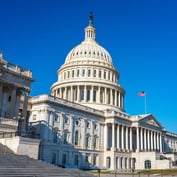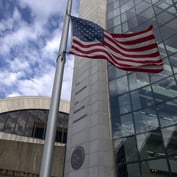What You Need to Know
- We’ll see a significant increase in Reg BI enforcement in 2022, attorney Susan Schroeder says.
- The SEC issued a wake-up call on Form CRS.
- In its new fiduciary rule, the Labor Department will propose clarifications regarding rollovers, Phyllis Borzi said.
Get ready: The Securities and Exchange Commission will be active this year in levying enforcement actions related to Regulation Best Interest (and more on Form CRS), while the Labor Department will push for a fiduciary rule that tightens rollover and insurance product recommendations, industry experts say.
“I think we’ll see a significant increase in Reg BI enforcement during 2022,” said Susan Schroeder, former head of enforcement at the Financial Industry Regulatory Authority who is now vice chair of the securities department at the law firm WilmerHale.
“Last year was the first year we could expect any enforcement activity and while the SEC brought a number of matters concerning Form CRS, those cases were not based on complex fact patterns and did not require significant investigation.”
The SEC, Schroeder continued, “has now had time to examine firm practices, and I think we’ll see a focus on enforcing” Reg BI.
Amy Lynch, founder and president of FrontLine Compliance, agreed that “more enforcement actions regarding Reg BI and Form CRS are sure to be released in 2022 against firms that simply failed to comply at all.”
How big will the Reg BI enforcement fines be? “Because Reg BI is still relatively new, there is less precedent that will govern the SEC’s penalty decisions — and SEC leadership has already stated that it may not be constrained by past penalties to determine new fines,” Schroeder said.
Cases “that solely involve compliance failures (such as insufficient policies and procedures) may not be accompanied by outsized fines,” she continued.
But “because Reg BI is such a priority for the SEC, I think we can expect very significant fines in matters where the staff alleges customers were harmed.”
Recent SEC deficiency letters related to Reg BI exams, Schroeder said, have focused on whether and how firms and their registered reps “consider reasonably available alternative investments, which is a new requirement imposed by Reg BI.”
So expect enforcement activity “related to that requirement, especially in cases where firms may be recommending higher-cost or complex securities to retail investors.”
Jim Lundy, partner in Faegre Drinker’s Chicago office and a former SEC attorney, expects to “start to see the first Reg BI enforcement actions” this year.
Exams taking place in late 2021 “were particularly focused and detailed,” he continued, and “it is reasonable to presume that the Division of Examinations has been looking for and will continue to look for good candidates to refer to the Division of Enforcement.”
Based on the enforcement division’s history, “the first enforcement actions will likely involve settlements and cases designed to send messages to the industry,” Lundy said.
Keep in mind, he noted, “that for violations of Reg BI that the Division of Enforcement need not establish scienter. That means that negligence-based violative conduct will be sufficient.”
Over the past five years or so, “the number of negligence-based cases (as opposed to scienter-based cases) has greatly increased. That is a trend that we should expect to continue” under SEC Chairman Gary Gensler.
Preparing for Heightened Reg BI Oversight
Schroeder recommends that firms focus on policies and procedures, “especially procedures to identify and mitigate conflicts of interest. The SEC can charge firms with Reg BI violations if their policies and procedures are insufficient, even if it has not identified specific problematic transactions.”
SEC leadership, she added, has also “talked about its focus on firm’s compliance systems; I think we can expect to see early cases focused on inadequacies in policies and procedures. And conflict-of-interest policies and procedures have been the focus on recent deficiency letters in Reg BI exams.”
Form CRS ‘Wake-Up Call’
The SEC’s Dec. 17 statement on Form CRS compliance “served as a wake-up call to advisors,” Lynch said, as it “let the industry know where the SEC sees firms running afoul of the requirements.”
The SEC, according to the statement, “saw a lot of poorly written Forms” while conducting targeted exams in 2021.
“Firms should use this time (as in Q1 of this year) to review and update their Form CRS so it meets all the requirements as described” in the SEC statement and instructions to the form, Lynch said. “Updated filings are due by March 31, so now is the time.”









 January 06, 2022 at 04:06 PM
January 06, 2022 at 04:06 PM











